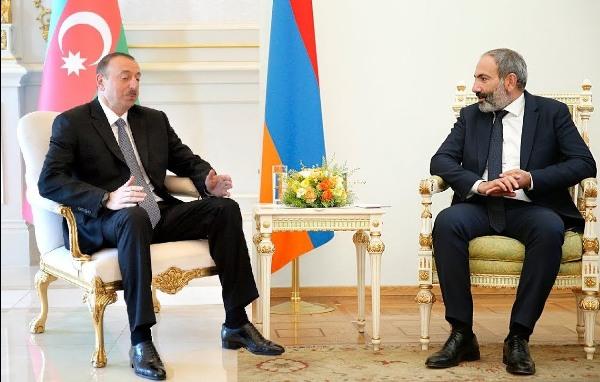Speaking to the website of the Strategic Council on Foreign Relations, Mohsen Pakaein, referring to the signing of Armenia’s agreement with Russia and the Republic of Azerbaijan on putting an end to the war in Karabakh, said: This agreement is generally more positive than the previous ones and increases hope for the establishment of regional peace and stability. Because according to this agreement the territories of the Republic of Azerbaijan will be liberated and in this regard, it can be said that the Republic of Azerbaijan is the main winner of this agreement.
Azerbaijan, the Main Winner of the Agreement
He added: Azerbaijan achieved this victory due to its presence on the battlefield and military victories, and finally convinced Russia to take serious action and mediate, and also convinced Armenia not to accept more defeats on the battleground and give a positive response to the demands of Azerbaijan.
The analyst of the Caucasus developments further continued: According to this agreement, the territories of Azerbaijan, except for Karabakh, will be fully returned to Azerbaijan by December 1, and in this regard, this agreement is positive and promising.
Settlement of Karabakh Conflict Postponed to Future Negotiations
Meanwhile, Pakaein remarked that Karabakh conflict has remained unsolved in the agreement and the case has been postponed to future talks. The Russians have announced that they will deploy peacekeepers from their own country to the region for five years, which can be extended for another five years. This means that the Karabakh conflict may not be resolved in the next five years and may remain in the same situation for another 10 years.
He added: As long as this conflict exists, both Armenia can reinforce and re-enter into the war or occupy other territories, and the Republic of Azerbaijan can launch another war because of the demands of its people for the liberation of Karabakh; therefore until the Karabakh conflict is not resolved and not returned to the Republic of Azerbaijan, we cannot be witness to a lasting and permanent peace.
While emphasizing that the peace process that has been established can only be completed by resolving the Karabakh conflict and returning it to the territorial integrity of the Republic of Azerbaijan, Pakaein said: Since 1921, the Autonomous Republic of Karabakh has been under the territorial integrity of the Republic of Azerbaijan and this situation continued even at the time of the collapse. In fact, the geographical borders indicate that Karabakh is part of Azerbaijan and this situation should continue and we should not be witness to the disintegration of the Republic of Azerbaijan. In that case, one can be hopeful for the survival of peace.
Weak Points of Russian Ceasefire Plan
According to the former ambassador of Iran to the Republic of Azerbaijan, the five years which have been specified are very long and at the present juncture demands of the Republic of Azerbaijan should continue until it achieves the liberation of Karabakh and its return.
Referring to the provisions of the agreement and the prospect of gaining access to stability and tranquillity through it, Pakaein said: Although Russia’s plan and the mediation effort is a positive step, it has given Armenia the opportunity to reinforce and get involved if necessary. It is possible that Mr. Pashinyan may be changed and the next president may not accept the ceasefire and the war may break out again. I believe that despite the ceasefire, this conflict will continue.
Acceptance of Agreement Was in Armenia’s Interest
Referring to the protests against the ceasefire agreement in Armenia, he said: Mr. Pashinyan is not in a good position in Armenia due to his positions in this regard. Of course, I believe that his acceptance of peace was the right decision. He saved both Armenia and Karabakh. Measures of the presidents before him were based on Armenian expansionism and they sought to take Karabakh from Azerbaijan and annex it to their country or make it an ally of Armenia.
The analyst of Caucasus affairs added: In fact, occupation of the cities of the Republic of Azerbaijan was a kind of serious interference in the internal affairs of Azerbaijan and turned its internal issue into a regional affair; therefore, the presidents before Mr. Pashinyan were the main culprits in keeping the conflict alive, which kept Armenia back from economic progress and turned the long-standing friendship between the two countries into enmity.
Pakaein said that Mr. Pashinyan intended to put an end to this issue and had such an idea from the first day he became president, adding: Of course, this issue has naturally caused and will cause dissatisfaction of the Armenian people and has endangered his position. But if he can explain to his people that this is in the interest of the people of Armenia and even the Armenians in Karabakh, he may be able to come out of the existing problems successfully.
Need for Continued Mediation Efforts by Iran
Referring to Iran’s plan to resolve the Karabakh conflict, the Iranian diplomat said: In this plan and in the remarks of the Supreme Leader of the Revolution, there was the point on the liberation of the occupied territories of the Republic of Azerbaijan and support for its integrity, which of course has been realized. Territories of the seven cities of Azerbaijan will return to that country, but the main issue is the Karabakh conflict which still exists and until it is not resolved, there is the possibility for the conflict, and despite the possibility of the conflict, possibility for the presence of the terrorists in the region and along borders of Iran is not far from imagination.
He stressed: The mediation efforts of the Islamic Republic of Iran should continue and we should not think that the issue is over. Our mediatory efforts should continue until the complete liberation of Karabakh and its return to the Republic of Azerbaijan together with respect for the rights of the Armenians residing there.










0 Comments